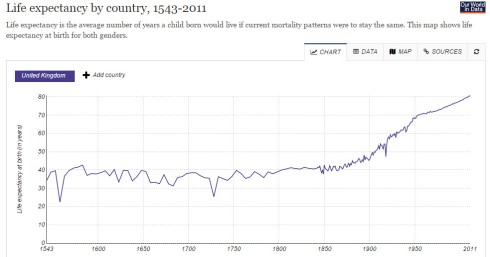I was recently sick – a victim of a gastro-intestinal bug that resulted in violent vomiting and diarrhea that lasted for over a week. During the span of four days I lost 10 pounds as I was unable to keep any food or liquid down. It was the sickest I have felt in a long time and 3 weeks later I feel as if I am still recovering.
The experience made me think of an observation made by Japanese novelist Eiji Yoshikawa, who wrote; “The line between life and death is not thicker than an eyelid“. It is a humbling experience to become really sick because it is then that you realize how fragile life is and how little control we have over illness and accidents that can lay low the human machine.
After all we are all biological machines and though we are wonderfully made, like all machines we are subject to decay and breakdown. Sherwin Nuland in his eye-opening book How We Die describes in clinical but thought-provoking detail how the systems of the body work in concert to keep us healthy and what happens when those systems start to break down.
Chapter by morbid chapter, and with intimate compassion, Dr. Nuland charts the major ways we die, including failures of the oxygen supply, heart attacks and strokes, old age, accident, Alzheimers, viruses and cancer.
Dr. Nuland writes that we’ve got three score and ten years and most of that could be healthy, but after that, the remainder of our body life is borrowed and breaking down. Towards the end, Dr. Nuland urges us to be realistic and measure quality of life against mechanical extensions of life, value peace of mind over medical miracles; and hold our connections with loved ones above everything. Live your life well, he says, because the end will probably not be pretty, and you want the people around you to remember everything else.
The human species has made great strides in improving longevity. As you can see from the chart; if you were born in 1900, you had a pretty good chance of dying by your 50th birthday. Since 1900 the global average life expectancy has more than doubled and is now approaching 80 years. In a pre-modern, poor world, life expectancy was around 30 years in every country.

Life Expectancy over last 500 years in the United Kingdom
The key factors in driving up our collective age lies with the advent of medical technologies, improved nutrition, higher education, better housing and improvements to our overall standards of living.
We are lucky to be living in this age where we have modern sanitation systems, access to clean water, medicines and vaccines to prevent contagious diseases, environmental protection agencies that work to keep our air and water from being poisoned, and food and drug administrators that ensure our medicine is effective and our food is nutritious.
Despite all these advancements some things cannot be prevented, like the common cold or a microscopic stomach bug – so enjoy your good health while you have it, don’t take for granted those days when all your body systems are operating as designed to keep you healthy and be grateful for all those past advancements that keep you from crossing that thin line between life and death.

Leave a comment